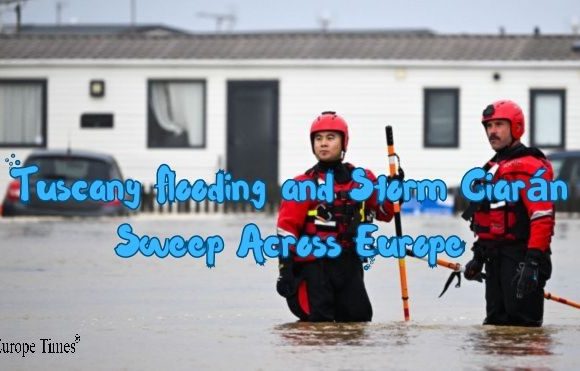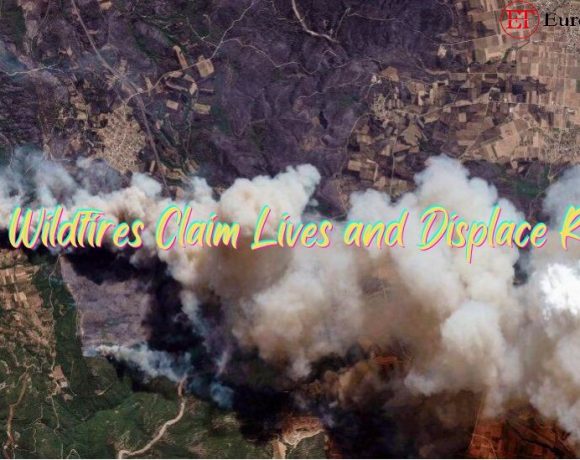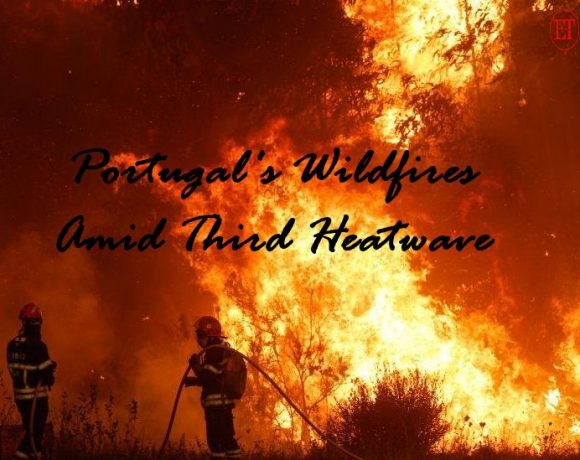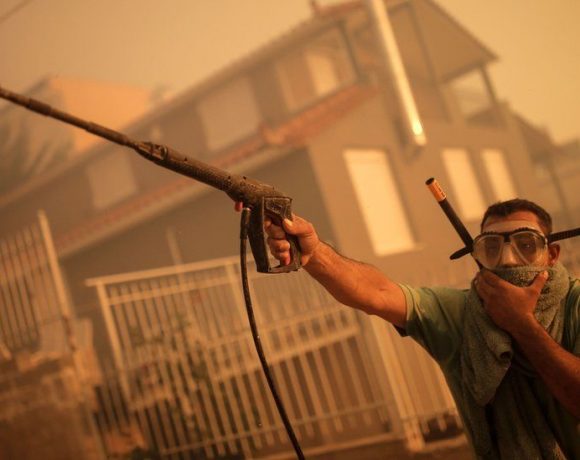
Severe flooding and strong winds have ravaged large parts of Tuscany, resulting in the loss of five lives and leaving several others missing. The River Bisenzio overflowed, sweeping away cars and forcing people to seek refuge on rooftops. The impact of the storm, named Ciarán, extended beyond Italy, causing more than 12 fatalities across Western Europe. France experienced winds reaching 207 km/h (129 mph), while Belgium reported two casualties due to falling trees, including a five-year-old child.
The havoc extended to other countries, with disruptions in transportation and power outages. Jersey’s residents were evacuated from their homes, and the storm caused chaos in various regions of Europe, including southern England, Belgium, the Netherlands, Germany, and the Atlantic coasts of Spain and Portugal.
In Tuscany, the situation was particularly dire, with Livorno, Prato, and Montemurlo being among the hardest-hit areas. Montemurlo witnessed a deluge of 200mm (7.8in) of rain in less than a day, leading to the River Bisenzio breaching its banks in multiple locations. The flooding claimed the life of an 85-year-old man who was unable to escape his submerged home. The governor of Tuscany described the rainfall as unprecedented in a century and urged people to seek safety on higher floors.
Videos captured the terrifying sight of vehicles being swept away by the floodwaters. Campi Bisenzio residents were forced to take refuge on their rooftops, while around 100 individuals sought shelter in a local shopping center. Meanwhile, the mayor of Prato lamented the devastating impact, with extensive flooding leaving vast areas underwater and the town’s Santo Stefano hospital partially inundated.
Additionally, the storm caused significant damage in Milan, leading to a second instance of flooding in a single week after the River Seveso overflowed. Veneto, in the northeast, faced similar challenges, with one person reported missing and 160mm of rainfall in just 24 hours. Further east, red weather alerts were issued in Slovenia and Croatia, warning of strong cyclones, high winds, hail, and thunderstorms.
Picture Courtesy: Google/images are subject to copyright



